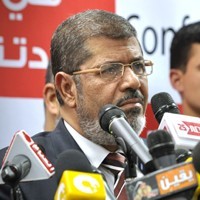In January, the United Arab Emirates arrested a group of Egyptians on suspicion of forming a Muslim Brotherhood cell in the country, prompting tensions with the Muslim Brotherhood-led Egyptian government. In an email interview, Frederic Wehrey, a Middle East program senior associate at the Carnegie Endowment for International Peace, discussed Egypt-UAE relations.
WPR: What has been the trajectory of relations between Egypt and the UAE since the fall of Hosni Mubarak?
Frederic Wehrey: Throughout 2011, bilateral relations were strained by mounting concern in the UAE over Egypt’s potential warming to Iran. For their part, Egypt’s new leaders have cast a wary eye on the Persian Gulf states because of their previous support for the Mubarak regime. Moreover, the Muslim Brotherhood in Egypt is angered by the Emirates’ sheltering of Mubarak-era figures, most notably the defeated presidential candidate and former Prime Minister Ahmad Shafiq. More important, however, is the UAE government’s concern that the Egyptian Muslim Brotherhood may seek to export its ideology and political program to the Gulf. Emirati officials have stated repeatedly that the Brotherhood does not recognize national boundaries and sovereign rulers, and is seeking to use local sympathizers, like the al-Islah NGO, to undermine the stability of the UAE. At its core, these worries reflect a broader unease in the Gulf with the contagion effect of the Arab uprisings.

